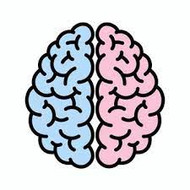Enhancing Brain Function: The Transformative Power of Exercise
Published by TE on Jun 12th 2023
When it comes to improving our overall well-being, exercise often takes center stage. From strengthening muscles to boosting cardiovascular health, the benefits of physical activity are widely recognized. However, exercise's positive impact extends beyond the physical realm; it also plays a pivotal role in enhancing brain function. In this article, we will explore the fascinating connection between exercise and brain health, shedding light on why prioritizing regular physical activity is crucial for optimal cognitive function.
- Boosting Blood Flow and Oxygenation: Engaging in exercise raises your heart rate and increases blood flow throughout the body, including the brain. This enhanced blood circulation delivers a fresh supply of oxygen and vital nutrients to brain cells, optimizing their performance. Improved oxygenation fuels neurogenesis (the growth of new brain cells) and strengthens synaptic connections, facilitating optimal cognitive function.
- Neurotransmitter Balance and Mood Enhancement: Regular exercise helps maintain a healthy balance of neurotransmitters in the brain, such as dopamine, serotonin, and norepinephrine. These chemicals are responsible for regulating mood, reducing stress, and promoting a sense of well-being. By increasing the release of endorphins, often referred to as "feel-good" hormones, exercise acts as a natural antidepressant and stress-reliever, effectively combating cognitive decline and promoting mental resilience.
- Enhanced Cognitive Abilities: Exercise has a profound impact on various cognitive abilities, including memory, attention, and executive function. Studies have consistently shown that individuals who engage in regular physical activity demonstrate improved memory consolidation, leading to enhanced long-term memory recall. Furthermore, exercise increases focus and attention, making it easier to concentrate on tasks and absorb new information.
- Neuroprotective Effects: Exercise acts as a shield for your brain, protecting it against age-related cognitive decline and neurodegenerative diseases such as Alzheimer's and Parkinson's. Regular physical activity stimulates the production of proteins that promote neuronal growth and repair, preserving brain health and reducing the risk of cognitive impairments. The neuroprotective benefits of exercise are particularly significant for older adults, but they are applicable to individuals of all ages.
- Increased Brain Plasticity: Brain plasticity refers to the brain's ability to adapt and reorganize itself in response to experiences and learning. Exercise has been shown to enhance brain plasticity by promoting the formation of new neural connections and improving the efficiency of existing ones. This increased plasticity allows the brain to learn and adapt more effectively, leading to improved cognitive flexibility, creativity, and problem-solving skills.
Regular exercise is not only crucial for physical fitness but also plays a vital role in enhancing brain function. The numerous benefits of exercise on brain health include increased blood flow and oxygenation, neurotransmitter balance, enhanced cognitive abilities, neuroprotection, and improved brain plasticity. By incorporating regular physical activity into your routine, you can optimize your brain's performance, boost cognitive abilities, and reduce the risk of cognitive decline. So, lace up your sneakers, hit the gym, or engage in your favorite physical activity, and unlock the transformative power of exercise for a healthier body and a sharper mind.

